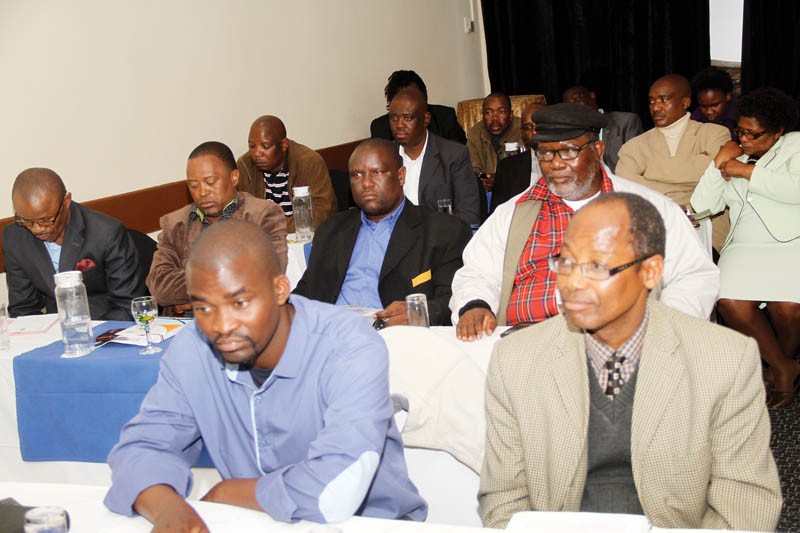Federations livid as essential services list grows
Tsaone Basimanebotlhe | Wednesday July 8, 2015 15:55


Under the amended Trade Dispute Bill, which debuted in Parliament on Monday, government intends to add teaching services, state broadcasting services, immigration and custom services, to the essential services list.
Under existing legislation, professions categorised as essential services are defined as being of critical importance to the economy. Strikes within these cadres are not legal as they are viewed as being against national interest.
In a rare show of solidarity yesterday, the Botswana Federation of Public Sector Unions (BOFEPUSU) and Botswana Federation of Trade Unions (BFTU) slammed the latest round of additions, saying government had “snuck them in”.
The unionists said the amendments read in Parliament on Monday were different from a draft presented to the Labour Advisory Board and did not include teaching services, broadcasting, immigration and customs.
BFTU general secretary Gadzani Mhotsha said adoption of the amendments into law, would be an outright denial of workers’ right to freedom of association and collective bargaining. “This is overarched by the right to strike,” Mhotsha said.
“We strongly object because the previous bill differs with the one currently before Parliament.” The secretary general said the latest additions were contrary to the definition of essential services by the International Labour Organisation (ILO).
“The entire workforce has been robbed of a critical arsenal which striking is to the workers.
“The inclusion of cadres and even those assisting in those services regarded as essential means everybody has become essential, contrary to the ILO’s definition of such services.”
BOFEPUSU secretary general, Tobokani Rari said his organisation’s collaboration with BFTU against the proposed amendments indicated “hard times”, which called for unity.
“This move by the government is to render workers helpless because the right to withdraw their labour in order to force the employer to reciprocate will be taken away. In essence, their hands will be tied,” Rari said.
He heavily condemned the categorisation of teachers as essential, saying the ILO was clear that the interruption of teaching services did not endanger life or threaten anyone’s safety.
An action plan to counter the Bill starts today, with the two federations vowing to write to the Speaker of the National Assembly.
Rari explained that they would write to chief whips in Parliament to address their different party caucuses. Further, the Parliamentary Labour Committee will also be roped in.
“We will also engage the international community, the ILO and other stakeholders to let them know what’s happening in Botswana,” Rari said. In the past, the two federations have indicated the services they disagree are essential, such as those at the Bank of Botswana and the telecommunications sector.
However, they have frequently accused government of stretching the definition of essential for the purposes of stifling industrial action within the public sector.
